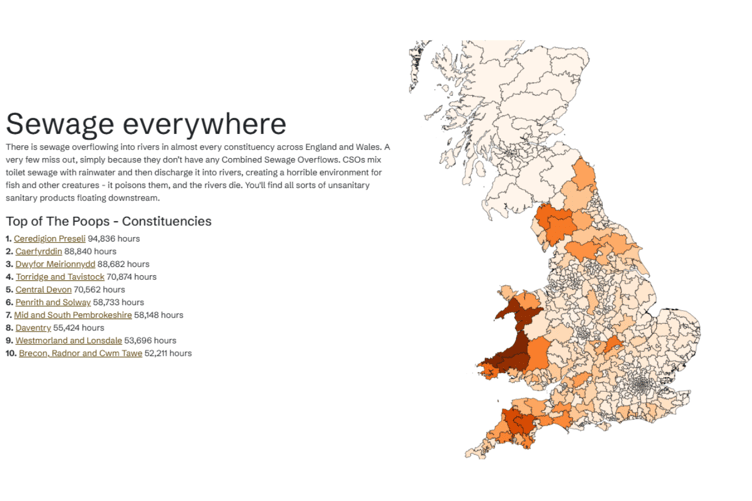There are plenty of laws supposed to stop pollution but how effective are they? Bodies that implement or oversee these laws can be international, UK wide or just operate in Wales. Judging from incidents like the pollution of our rivers it seems these laws don’t work very well.
I’m reading Roy Bamford’s A Love of Nature. Roy was a Cambrian News columnist from 1984 to 2017. Here’s what this incredible naturalist wrote in 1991. “Now we need the water authorities to continue cleaning up more of the inland and coastal waters. With recent Cambrian News headlines in mind, nothing short of a comprehensive sewage treatment works should be acceptable to Aberystwyth or any other coastal resort for that matter.”
So have Dŵr Cymru and its overseers Natural Resources Wales (NRW) not had enough time to sort out the sewage outfalls? How many decades do they need? With water bills increasing substantially this year it appears they’ve had other things on their minds. Perhaps the law needs tightening so that sewage isn’t allowed to be pumped out with the regularity that it is. Or perhaps we need people in control to be held accountable properly.
There’s a movement to bring in the law of ecocide with an internationally agreed definition. It’s a concept that’s debated all over the globe; indeed many countries have incorporated ecocide into their domestic laws, eg Belgium, Scotland and Ukraine. Phillippe Sands (KC) sums it up, “Ecocide is about law in the service of our planet, a means of changing consciousness and of harnessing the idea and ideals of international justice for the greater good.” Examples include severe water contamination, nuclear accidents, mass deforestation or chemical spills.
In the UK (England and Wales) Baroness Rosie Boycott introduced an Ecocide Bill into the House of Lords, where it remains. The aim of this bill is, “to close an existing gap in UK criminal law which allows perpetrators of the most severe environmental harms to escape accountability.”
Critics of the ecocide laws argue that these laws don’t go far enough. Terms such as “wanton, severe, widespread and long-term” means that plenty of polluting activities would never get across the legal threshold, allowing companies and governments to carry on as usual. Plus there’s always the get-out clause as these bodies would only be falling foul of the international law if the pollution is “clearly excessive in relation to the social and economic benefits anticipated.” Oh yes, that old chestnut!
Of course in Wales we have the Wellbeing of Future Generations Act (2015). It’s a requirement on public bodies such as NRW to fulfil all principles of the Act. Here are some words cherry-picked by me quoting the Future Generations Commissioner on what Wales will look like: “An innovative, productive and low carbon society which recognises the limits of the global environment and therefore uses resources efficiently and proportionately; a nation which maintains and enhances a biodiverse natural environment with healthy functioning ecosystems.”





Comments
This article has no comments yet. Be the first to leave a comment.